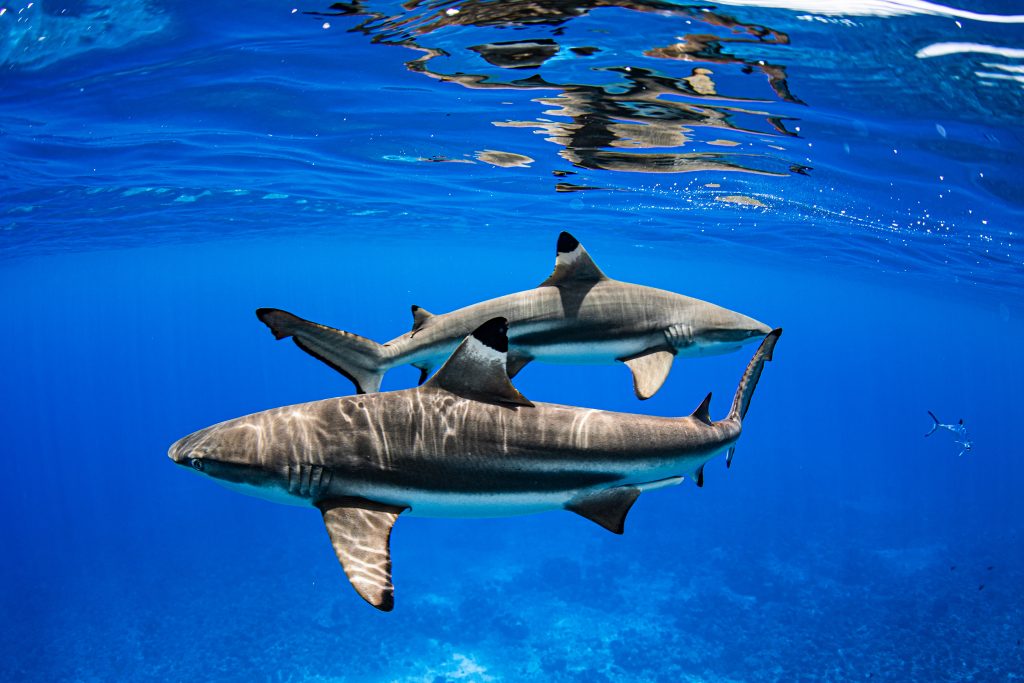Course Overview
The International Course “Sharks Uncovered: Science, Conservation and Knowledge” is a unique, immersive experience designed for students and academic staff interested in shark biology, physiology, and conservation. Taking place from July 7th to July 12th, 2025, this 30-hour intensive program will provide a comprehensive understanding of these fascinating marine predators through a combination of theoretical sessions, interactive discussions, and hands-on practical activities.
Coordinated by Dr. Remedios Cabrera-Castro, the course features an international panel of renowned experts in marine science, conservation, and shark research, offering participants a broad and interdisciplinary perspective on the subject.
Course Objectives
Throughout the course, participants will:
- Develop a strong foundation in shark biology, including evolutionary history, anatomy, physiology, and behavior.
- Explore the ecological role of sharks in marine ecosystems and their interactions with other species.
- Understand the threats sharks face, including overfishing, habitat loss, and climate change, and evaluate current conservation efforts.
- Gain hands-on experience through data analysis, case studies, and practical activities, which may include a live shark dissection or aquarium-based observations.
- Engage with leading researchers in shark science and conservation, learning about their work across different marine regions of the world.
Who Should Attend?
This course is designed for:
- Students at any academic level with an interest in marine biology, conservation, or environmental sciences.
- Academic staff (PDI) involved in marine research, ecology, or biodiversity conservation.
- Conservation advocates and professionals seeking to expand their knowledge of shark-related topics.
Instructors and Expertise (for more details)
Participants will learn from an internationally recognized team of experts, each bringing specialized knowledge and research experience:
- Dr. José Belquior Gonçalves Neto
- Dr. Carlos Rodríguez García
- MSc. Ángel Rafael Domínguez Bustos
- Dr. Jaime Penadés Suay
- Dr. Natascha Wosnick
- Dr. Patricia Charvet
- Dr. Carolina Fernández Maldonado
- Dr. Vicente Vieira Faria
- Dr. Victor Sanz
This diverse team of researchers ensures a global perspective on shark biology and conservation efforts, covering research conducted across multiple marine ecosystems.
Course Structure
The program is designed to balance theory with practice, providing participants with a holistic learning experience.
July 7 – 11, 2025:
- Lectures and discussions on shark anatomy, physiology, ecology, and conservation.
- Interactive sessions with researchers actively engaged in fieldwork.
- Practical activities such as data analysis, species identification, and conservation case studies.
- Potential live shark dissection or controlled aquarium observations, allowing participants to apply their theoretical knowledge in real-world scenarios.
July 12, 2025:
- Course closing session and reflection on conservation strategies.
- Optional networking and field activities to consolidate learning experiences.
Key Benefits of the Course
- Gain expert knowledge on sharks from an interdisciplinary team of specialists.
- Develop technical skills in data analysis, conservation strategies, and marine biodiversity research.
- Engage in hands-on experiences, including potential dissections or live observations.
- Expand your professional network by interacting with international experts and fellow participants.
- Enhance career prospects in marine research, environmental policy, and conservation efforts.
This course is an exceptional opportunity for those passionate about marine biology and conservation, offering cutting-edge insights into shark science and real-world applications of research techniques.
Course content, assessment and other relevant information
If you want to know more about this course and all the content that will be given click here
If you have any inquiries about the course
Contact the coordinator if you have any questions about the course;
Remedios Cabrera-Castro reme.cabrera@uca.es


